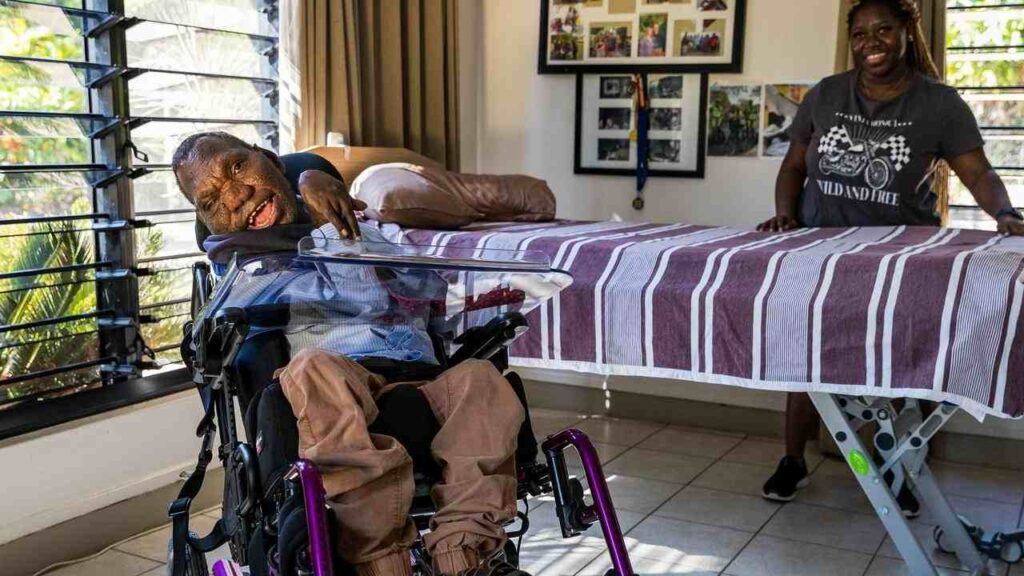Travel insurance is crucial for all travelers, but it is especially important for disabled individuals who face unique challenges while traveling. Having the right insurance can provide peace of mind by protecting against unexpected events such as medical emergencies, trip cancellations, and the need for specialized assistance.
Specialized travel insurance typically covers comprehensive medical needs, including pre-existing conditions, emergency evacuations, and repairs or replacements for mobility aids. Standard policies may not adequately address these specific requirements, making tailored options essential.

When selecting a policy, disabled travelers should prioritize features like extensive medical coverage, 24/7 assistance services, and clear terms regarding pre-existing conditions. They can find coverage that meets their unique needs by comparing different plans and seeking expert advice.
Non-refundable Flight Coverage
In this article, we will understand the importance of travel insurance for disabled people and highlight key factors to consider when selecting the most suitable policy.
Types of Coverage to Look For
When discussing travel insurance for disabled people, it’s crucial to highlight the various types of coverage that are particularly relevant to their needs. Here are the key types of coverage to look for:
- Medical Coverage: Ensure the policy includes extensive medical coverage, especially for pre-existing conditions related to disabilities. This should cover medical treatments, hospital stays, and emergency evacuations.
- Equipment Coverage: Check if the insurance covers repairs or replacements for mobility aids and other essential equipment in case of loss or damage during travel. This is vital for travelers who rely on such devices.
- Assistance Services: Look for policies that provide 24/7 assistance services. These can help with arranging accessible transportation, finding medical facilities, or any other urgent needs that may arise while traveling.
- Cancellation and Interruption Coverage: This coverage protects against financial losses if a trip needs to be canceled or cut short due to unforeseen circumstances, including health-related issues.
- Loss of Medication Coverage: Ensure the policy includes coverage for lost medication, which is critical for maintaining health while traveling. This helps avoid costly medical issues that could arise from not having the necessary medications.
- Personal Liability Coverage: Consider policies that offer personal liability coverage in case of accidental damage or injury caused by the insured during their travels.
- Coverage for Carers: If traveling with a carer or requiring personal assistance, ensure the policy covers any potential issues that may affect the carer’s ability to assist, including illness or emergencies.
- Emergency Evacuation Coverage: This is important for serious medical emergencies that may require immediate evacuation to a suitable medical facility.
By focusing on these specific types of coverage, disabled travelers can better protect themselves against potential risks and ensure a more enjoyable travel experience.
How to Buy Travel Insurance for Disabled People
To buy travel insurance for disabled people, follow these steps:

- Assess Your Needs: Identify specific coverage requirements based on your disability, such as medical emergencies, trip cancellations, and protection for mobility aids.
- Research Providers: Look for insurance companies that specialize in travel insurance for disabled individuals. Some providers have tailored policies that understand various disabilities.
- Get Quotes: Use online tools or contact insurers directly to obtain quotes. Ensure you compare coverage options, premiums, and any exclusions related to your disability.
- Disclose Pre-existing Conditions: Be honest about any pre-existing conditions when applying for insurance. This is crucial to ensure your policy is valid and covers your needs.
- Review Policy Details: Carefully read the terms and conditions of the policy, focusing on coverage limits, exclusions, and the claims process.
- Purchase Early: Buy your travel insurance as soon as you book your trip to ensure coverage for any issues that may arise before departure.
- Keep Documentation Handy: Have your policy number and emergency contact information accessible during your trip in case you need to make a claim or seek assistance.
Post-Booking Travel Insurance Options
By following these steps, you can secure appropriate travel insurance that meets your unique needs as a disabled traveler.
Legal Protections for Disabled Travelers
Traveling with a disability can present unique challenges, but there are several legal protections in place to ensure that disabled travelers have equal access and opportunities. Here are some key legal protections:
- Americans with Disabilities Act (ADA): The ADA is a comprehensive civil rights law in the United States that prohibits discrimination against individuals with disabilities in all areas of public life, including transportation, public accommodations, and employment. It ensures that disabled travelers have the right to accessible transportation and facilities.
- Air Carrier Access Act (ACAA): The ACAA prohibits discrimination against disabled individuals in air travel. Airlines are required to provide necessary accommodations, such as wheelchair assistance, seating accommodations, and assistance with boarding and deplaning. The Department of Transportation (DOT) enforces this law and provides resources like the Airline Passengers with Disabilities Bill of Rights.
- International Protections: Different countries have their own laws and regulations regarding accessibility and discrimination. For example, the European Union has regulations ensuring the rights of disabled travelers, including assistance at airports and on flights. It’s important to research the specific laws of your destination before traveling.
- Service Animals: Many countries have specific regulations regarding the travel of service animals. In the U.S., the ADA and ACAA provide guidelines for traveling with service animals, ensuring they are allowed in public spaces and on flights.
- Accessibility Standards: Various international standards, such as those set by the International Civil Aviation Organization (ICAO), aim to improve accessibility in air travel. These standards cover aspects like accessible seating, boarding procedures, and the handling of assistive devices.
- Filing Complaints and Seeking Assistance: If a disabled traveler encounters discrimination or accessibility issues, they can file complaints with relevant authorities. In the U.S., complaints can be filed with the DOT. Many countries have similar processes for addressing grievances related to disability rights.
Benefits of Travel Insurance for Students
These legal protections are designed to ensure that disabled travelers can enjoy their journeys with dignity and respect.
Specialized Travel Insurance Providers
Here are some insurance companies that specialize in providing travel insurance policies tailored for disabled travelers:
- AllClear Insurance: AllClear Insurance offers comprehensive travel insurance plans that cater to individuals with pre-existing medical conditions and disabilities. They provide coverage for medical expenses, trip cancellations, and emergency medical evacuations.
- Fish Insurance: Fish Insurance specializes in policies for disabled travelers, offering coverage for medical equipment, personal belongings, and emergency medical expenses. They also provide assistance services to ensure a smooth travel experience.
- Travelex Insurance: Travelex Insurance is known for its inclusive policies that cover pre-existing medical conditions, provided the traveler is medically able to travel at the time of purchasing the plan. They offer extensive coverage, including trip cancellation, emergency medical care, and baggage loss.
- Insurancewith: Insurancewith offers tailored travel insurance policies for people with a wide range of disabilities, including physical and learning disabilities. Their policies are designed to cover medical expenses, trip interruptions, and other travel-related issues.
- Specialist Providers on Go.Compare: Go.Compare lists several specialist providers that offer tailored travel insurance for disabled travelers. These providers ensure that pre-existing conditions and specific disabilities are covered, providing peace of mind during travel.
Airbnb Travel Insurance Benefits
These companies are known for their inclusive policies and commitment to providing comprehensive coverage for disabled travelers.
Cost Considerations

The cost of travel insurance for disabled people can vary based on several factors, including the traveler’s age, the cost of the trip, the type of coverage, and any pre-existing medical conditions.
Typically, travel insurance costs between 4% to 12% of the total trip cost, but this percentage can be higher for disabled travelers due to the need for more comprehensive coverage.
For instance, a 45-year-old traveler might pay around 6.3% of the trip cost, while a 70-year-old traveler might pay about 11%. The type of coverage also plays a significant role; policies that include medical expenses, emergency medical evacuation, coverage for medical equipment, and trip cancellation or interruption tend to be more expensive.
Additionally, policies that cover pre-existing conditions usually come at a higher premium but are essential for many disabled travelers. Other factors such as the destination, duration of the trip, and coverage limits also influence the overall cost.
Therefore, it’s crucial to compare different travel insurance plans and read the fine print to ensure the policy meets your specific needs.
Specialized vs. Standard Travel Insurance
Specialized travel insurance and standard travel insurance serve different purposes, particularly for travelers with disabilities.
Specialized Travel Insurance:
- Tailored for individuals with specific medical conditions or disabilities.
- Covers a broader range of needs, including emergency medical treatment related to existing conditions, mobility equipment replacement, and assistance services.
- Requires medical screening to assess risks and determine coverage terms, ensuring that unique health needs are adequately addressed.
Standard Travel Insurance:
- Generally offers basic coverage for common travel risks like trip cancellations, lost luggage, and emergency medical expenses.
- Often excludes coverage for pre-existing conditions or specific disabilities, which can leave travelers vulnerable in case of emergencies related to their health.
- May not provide the necessary support for issues unique to disabled travelers, such as wheelchair repairs or specialized assistance during the trip.
In summary, travel insurance for disabled people is crucial for ensuring comprehensive protection that caters specifically to their unique needs, as standard policies often lack the necessary coverage.
FAQs
Q 1. Can I get travel insurance if I have a severe disability?
Ans. Yes, many insurance providers offer specialized travel insurance policies that cater to travelers with severe disabilities. It’s important to disclose all relevant medical information to ensure you get the appropriate coverage.
Q 2. What should I do if my mobility aid is damaged during my trip?
Ans. If your mobility aid is damaged, contact your travel insurance provider immediately. They will guide you through the process of filing a claim and getting the necessary repairs or replacements.
Q 3. Can I get travel insurance if I am traveling for medical treatment?
Ans. Travel insurance for medical treatment trips can be more complex. Some policies may cover emergency medical expenses, but planned treatments might not be included. It’s best to discuss your specific situation with the insurance provider.
Q 4. What happens if I need medical evacuation while traveling?
Ans. If you need medical evacuation, your travel insurance provider will arrange for transportation to the nearest suitable medical facility. Make sure your policy includes medical evacuation coverage.
Q 5. What should I do if I lose my travel insurance documents while traveling?
Ans. If you lose your travel insurance documents, contact your insurance provider immediately. They can provide you with digital copies and assist you with any claims or emergencies.
Conclusion
Travel insurance is very important for disabled travelers. It helps protect you from unexpected problems like medical emergencies, lost luggage, or trip cancellations. By choosing the right policy, you can make sure you have the coverage you need for your specific situation.
Look for policies that cover medical expenses, mobility aids, and provide emergency assistance. Remember to compare different policies, read the fine print, and choose one that best fits your needs.

Aurora Langley is a travel insurance enthusiast with extensive knowledge in the field. Holding a TIPA (Travel Insurance Professional Accreditation) certification, Aurora is passionate about helping travelers find the best coverage for their adventures. As an author on the ‘FundFinesse’ blog, Aurora writes clear, easy-to-understand articles about travel insurance.


